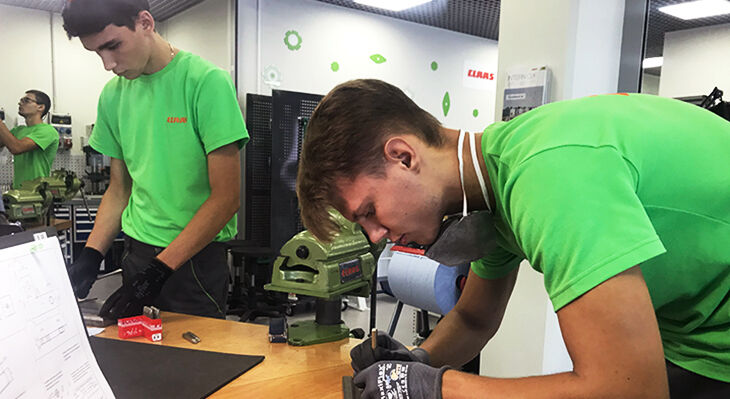Online for the second time – Annual Meeting of the German-Russian VET Working Group
22.12.2021
Virtually nothing can shake a solid cooperation agreement – not even a pandemic. Both sides of the German-Russian bilateral Working Group on Vocational Education and Training, which GOVET supports on behalf of the BMBF, were able to report further progress one year after their last online meeting.

As had been the case in 2020, the 15th Annual Meeting of the bilateral Working Group with Russia had to be staged virtually because of the pandemic. The two chairs of the Working Group, Departmental Head Victor Neumyvakin (Ministry of Education of the Russian Federation) and Subdivision Head Frithjof A. Maennel (Federal Ministry of Education and Research, BMBF) were thus all the more keen to emphasise the importance of the cooperation arrangements and of the joint interests being pursued.
Activities in 2021 included a bilateral workshop on COVID-19, in which the Federal Institute for the Development of Education (FIRO) at the Russian Presidential Academy of National Economy and Public Administration (RANEPA) and GOVET reviewed the effects of the pandemic on the education and training market. The contents and results of this workshop will be published in an English language BIBB publication that will be embedded within the international context of the other partner countries.
In 2021, Russia and Germany have also continued to work on improved digital career guidance activities. Both countries would like to propel this topic forward on a face-to-face basis next year with study trips of experts. The discussion that took place on the occasion of the Annual Meeting made it clear that greater significance is being attached to the whole spectrum of “sustainability and vocational education and training” within the scope of bilateral cooperation with Russia. One example of this is the work which the German Chamber of Commerce and Industry in Moscow is currently undertaking together with the company REMONDIS, which also operates in Russia, and with the Russian National Qualifications Agency (NARK) to develop an occupation in the area of “materials and waste recycling”.
Some of the other main areas of focus adopted in German-Russian cooperation were “digital didactics”, “recognition of qualifications” and “independent examinations”. Representatives from companies such as Claas and from the “Russian Union of Industrialists and Entrepreneurs” (RUIE/RSPP) reported on everyday training routines. LD DIDACTIC GmbH and VDZ gGmbH were amongst the training providers drawing attention to the provision they offer. During the meeting, our Russian partners from the Agency for Strategic Initiatives (ASI) reported on further implementation of the “Young Skilled Workers” and “Regional Industrial Standard” programmes, both with the objective of improving quality development and ensuring better matching between the demand for qualified workers and supply in Russian VET. Unfortunately, personal networking at a face-to-face level is suffering because of the present situation. The German-Russian Youth Exchange Foundation (DRJA) outlined the difficulties in successfully further developing the topic of mobility that have been occasioned by the pandemic.
The meeting also ascertained that the investment climate in the area of training in the Russian regions is at least partially dependent on the quality of the VET regional network, on new standardisation approaches and on the development of flexible programmes. This will be a further field for future cooperation.